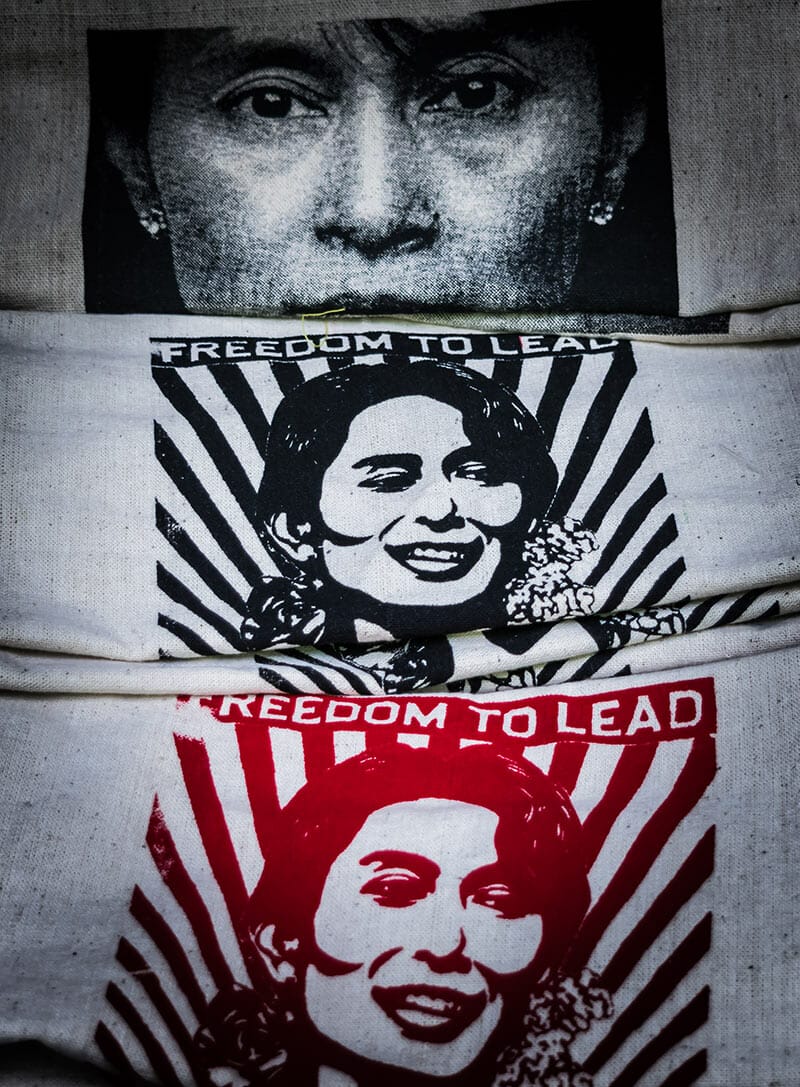Last month, Myanmar’s de facto leader Aung San Suu Kyi took the stand at the International Court of Justice (ICJ) in the Hague to rebut allegations that her country’s systematic persecution of its Rohingya population amounts to genocide. Aung San Suu Kyi, once lionised for her stand against an oppressive military dictatorship, strenuously denied the charges — despite reams of evidence and the presence of nearly 1 million Rohingyas in refugee camps in Bangladesh. They ended up there after fleeing a so-called counterterrorism campaign by the Myanmar military in 2017 that left uncounted thousands dead.

The picture of Aung San Suu Kyi on T-shirt at a market in Yangon, Myanmar. Photo: Toca Marine / Shutterstock.com
The ICJ has announced that it will issue a preliminary judgment in the case on January 23, 2020. Yet one outcome is already clear: Aung San Suu Kyi’s defiant genocide denial generated an outpouring of approval back home, bolstering support for her as well as for anti-Muslim nationalism. This is chilling not only for the Rohingya and other Muslims inside the country. It is also extremely dangerous for the multiethnic and multi-religious state of Myanmar as a whole.
Maung Zarni
To read the full-text click the link: https://www.washingtonpost.
Maung Zarni is the co-founder of FORSEA, a grass-roots organization of Southeast Asian human rights defenders, and the co-author of “Essays on Myanmar’s Genocide of Rohingyas.”
* Opinions expressed in this article are the author’s own and do not necessarily reflect FORSEA’s editorial stance.
Banner: Jason/Flickr

